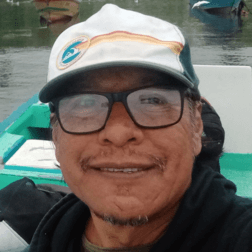Solutions in Sight
ABC’s Marine Program protects and restores seabird populations across the Western Hemisphere through innovation, partnerships, conservation planning, and direct action. We work with three central ideas for marine conservation:
Safe Havens for Marine Birds: Finding the last strongholds and securing nesting places.
Sustainable Seascapes: Ensuring marine birds and people have access to marine and terrestrial resources.
Kinship: Increasing visibility through connections to human culture and activity.














